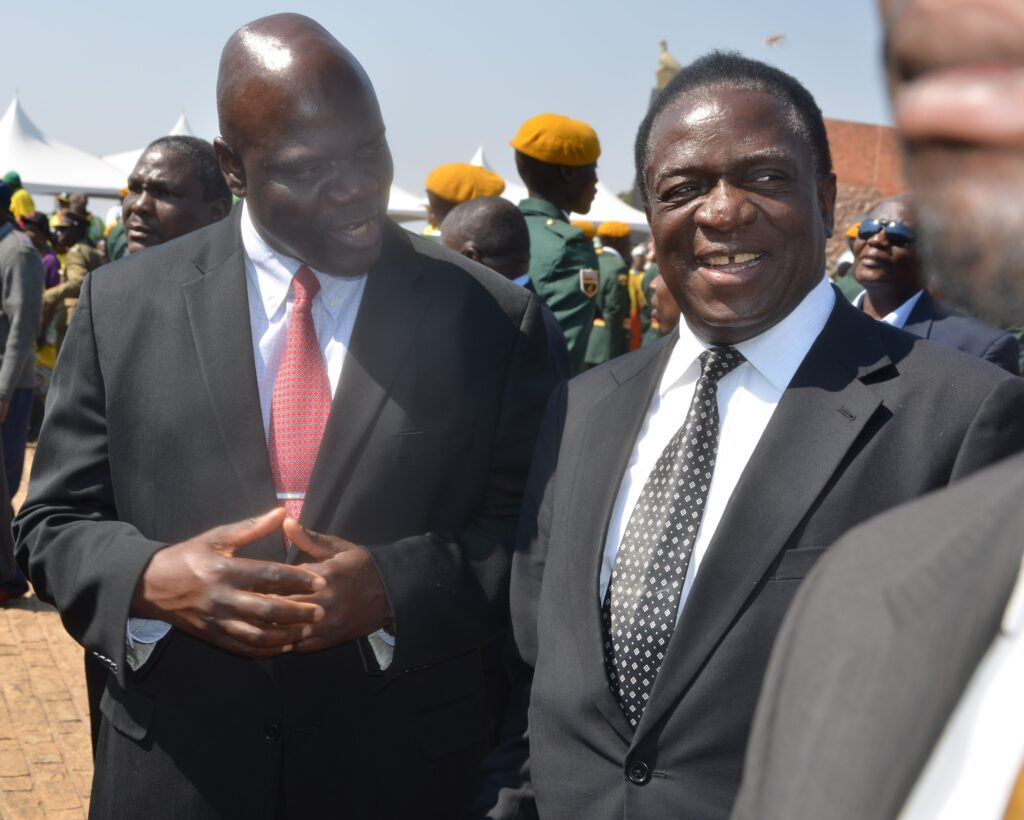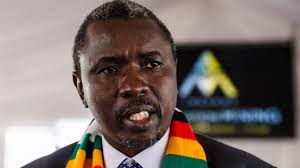Mnangagwa miserably failed to utilise the coup d’état dividend

Prof. A. Mtambara and President Emmerson Mnangagwa
By Arthur G.O. Mutambara
Emmerson Mnangagwa miserably failed to utilise the coup d’état dividend to entrench himself effectively.
Indeed, after the coup, because of lack of strategic insight and foresight, Emmerson worked against his own self-interest.
Not to talk about the national interest.
Now, he is thoroughly discredited, gallivanting from one discredited election to the next.
And the country is in a mess!
It did not have to be this way.
Why did Emmerson not learn from his master and mentor Robert Mugabe?
Robert Mugabe, with all his faults, had better instincts after his victory in the 1980 elections.
He tried to harness the goodwill granted to the new nation by reaching out to Joshua Nkomo and Ian Smith.
Of course, this was short-lived, as Gukurahundi would soon follow.
It was downhill from there.
However, let us examine what he did after his ascendancy in 1980.
Tactically, he knew the Rhodesians could undermine him.
They still controlled the state infrastructure and instruments of violence in all respects.
His party had won but was inexperienced in statecraft.
They were vulnerable.
Although he had won outright – 57 out of 80 of the open parliamentary seats – he needed time to establish an administration and consolidate his grip on national power.
In our discussions at State House, Robert Mugabe clearly explained his intricate and nuanced manoeuvring to me:
“I had to proceed very carefully and strategically, indeed.
We invited our colleagues from ZAPU into government.
Robert Mugabe worked with his worst enemies to consolidate his grip on power and entrench himself.
If only Mnangagwa had 10 per cent of that political aptitude and sophistication in 2017, Zimbabwe would be a different place today.
Even his colleagues and supporters acknowledge Emmerson’s unmitigated folly.
ZANU-PF stalwart Tshinga Dube, in his autobiography released in November 2019, argues that Zimbabwe could have fared much better if Emmerson Mnangagwa had reached out to Morgan Tsvangirai, with a view to set up an inclusive transitional arrangement, soon after the coup d’état of November 2017:
“… If the MDC Alliance was brought closer when the new dispensation was ushered, we would today be in a different situation.
We would have emerged out of the woods and exited a life of perennial doom and gloom.
The lost opportunity has cost us immensely. We have without doubt retrogressed.”
Dube posits that Mnangagwa’s “bid to grab everything while leaving out the main opposition MDC that helped him camouflage to the world as a popular uprising, what had all the hallmarks of a coup, has backfired …”
This is a common-sense position that we have articulated elsewhere in this book.
However, it is refreshing to see the same views being regurgitated by ZANU-PF leaders.
This means that Mnangagwa’s lack of strategic thinking, political acumen and governance gravitas is common cause even among his party members.
What a pity.
Zimbabwe deserves a better leader.
This is an excerpt from the book: In Search of the Elusive Zimbabwean Dream, Volume III (Ideas & Solutions)







